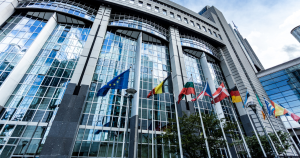No Peace Without Justice, in partnership with the Fiji Women’s Rights Movement and with the financial support of the European Union, the Governments of Australia, New Zealand, the United Kingdom and the United States, is organising a Pacific Roundtable Discussion on Non-Judicial Accountability Mechanisms in Fiji on 24-27 June 2008.
The purpose of the four-day Roundtable is to discuss the role of and potential for various accountability mechanisms or processes in the promotion and protection of democracy, the rule of law and human rights in the Pacific sub-region. Participants will include high level representatives of the Fijian previous government and of the current interim military rulers, leaders of the main political parties, representatives of civil society, including the media and lawyers, the military and the police, as well as former heads of governments and ministers from Tonga, Papua New Guinea, Solomon Islands, Bougainville and Vanuatu.
Strengthening the rule of law, human rights and democracy is a common challenge across these Pacific Island countries, in particular in Fiji where following the December 2006 military takeover an emergency law have been declared. While each country will have its own specific solutions, the sharing of ideas, experience and approaches at the regional level can lead to innovative and workable solutions being found at the country level. The roundtable discussion will be an opportunity to undertake lobbying and advocacy, build political will and increase participants’ lobbying and advocacy capacity on ending impunity for war crimes, crimes against humanity and genocide, and promoting democracy and the rule of law, through sharing experiences and best practices, as well as examples of where mechanisms and actions have failed to meet these aims.
The sub-regional roundtable discussion in Fiji is organized in the framework of a project financed by the European Union that has as its overall objective a rigorous, field-based analysis of the role of non-judicial accountability processes in conflict, post-conflict and transition countries, aiming to promote peace, justice and reconciliation by narrowing the impunity gap through individual accountability for war crimes, crimes against humanity and genocide. The results of the discussions will feed into the production of a Global Report on whether, how and to what extent non-judicial, quasi-judicial and neo-traditional accountability mechanisms have, could or should contribute to implementing ICC complementarity, narrowing the impunity gap and promoting the rule of law rather than provide an alibi for impunity. The Global Report is designed to be a tool and an impetus for more rigorous consideration of the interplay between different mechanisms and their potential contribution to integrated -and more effective- accountability for war crimes, crimes against humanity and genocide.
For further information, contact Alison Smith on asmith@npwj.org or +32-486-986 235 or Nicola Giovannini on ngiovannini@npwj.org or +32-2-548-3913.


